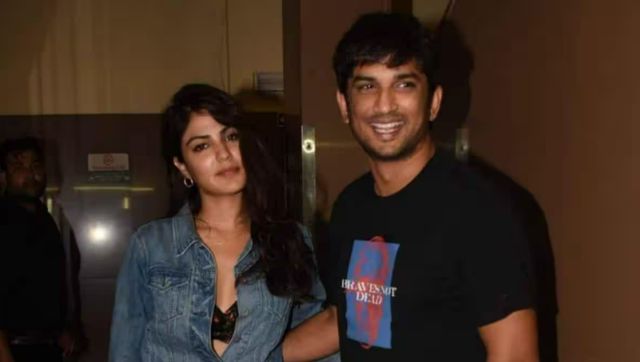Let’s all give call centres a break.
We’ve done the sit-com. Thank you, NBC. We’ve done the novel. Thank you, Chetan Bhagat. We’ve done Outsourced – the movie. Thank you Ayesha Dharker.
Now we’re getting the latest in sabbatical lit – my summer at an Indian call centre. The story that’s getting a lot of buzz in Mother Jones these days is about how Andrew Marantz spent a summer in a call centre in Gurgaon. He gets his first lesson on the way to work in the company car.
While we idle in interminable traffic, my coworker Nishant asks where I’m from. “America?” he says. “I’ll tell you about America.”
I must look wary, because he quickly explains that, after years of 50-hour workweeks, he’s probably spoken with more of my compatriots than I have.
I try to digest the import of this. At least Elizabeth Gilbert left America to learn authentic foreign skills – how to eat in Italy, pray in India and love in Indonesia. The newest form of sabbatical lit is when an American leaves America to come to India to learn how to be an American. Now that is mind-boggling.
Crash course in stereotypes
To Marantz’s credit, he doesn’t seem to be trying to resolve any midlife crisis of his own on the backs of the call centre workers. He really tries to give his readers a glimpse into life at the other end of the line. He stays in a workers’ hostel, a nine-by-six room with a double bed and newspaper on the windows. He discovers one day, unbeknownst to him, he has a roommate, a tech-support employee. They sleep on the same bed, side by side.
This isn’t a tee-hee, look at those funny Indians trying to pepper their conversations with gotchas and Seinfeld references, kind of story. Marantz talks to the workers on their cigarette breaks about their lives. He dutifully takes notes during the orientation courses, swallowing cultural stereotypes whole. For example, about Aussies.
Australia is known as the dumbest continent. Literally, college was unknown there until recently. So speak slowly.
Technologically speaking, they’re somewhat backward, as well. The average person’s mobile would be no better than, say, a Nokia 3110 classic.” …
… Let’s admit: They are quite racist. They do not like Indians. Their preferred term for us is- please don’t mind, ladies-‘brown bastards.’ So if you hear that kind of language, you can just hang up the call.”
Advertisement
That was reassuring. In a culture where customer is always king, where you have to sweet talk surly people around the world into giving you their credit card numbers, buy insurance, or pay their outstanding bills, these workers who have stripped themselves of their Indian names, who get teased that they’ll be fined a rupee for every non-English word they use in class, at least still have the right to hang up the call.
Much ado about BPO
Call centres have become quite the cultural phenomenon story even though its effect on the larger Indian culture is much smaller than all the sitcom scripts about it. They might have huge impacts on the individual lives of their workers but they are not the vanguard of the new India even though many Americans seem to think so.
But it leaves me wondering why after all this time is the West still so obsessed with what Indians call Business Process Outsourcing?
Hasn’t the story moved on? Why don’t hi-tech jobs at the Googles and IBMs in Bangalore evoke the same fascination as the voice on the other end of the tech support line, or the person who is trying to sell you insurance from across the world? Why is outsourcing in popular imagination still stuck to the image of the Jagdeesh who becomes Joe for eight hours a day?
Perhaps there is something intrinsically romantic in that image of transformation, of chameleon identities, of this young man or woman taking on a persona he thinks will appeal to someone halfway across the world. It’s the ultimate blind date.
Continued on the next page..
But in many ways, it is also about America’s self-absorption. A call centre is a hall of mirrors in which the West sees itself reflected endlessly. It is fascinating for westerners to see how someone in Gurgaon or Bangalore is trying to distill the essence of American or Australian culture, even ape it. It is a midsummer night’s dream that is ripe for a comedy of errors.
What’s your name, really? Actually I’d rather not know
Despite all the furore over outsourcing there is probably a sneaking sense of relief that Americans have sent their grubbiest white-collar jobs halfway across the world because it’s a little easier to be pissed off at some unknown Indian than someone who really does sound like them.
Steven writes in response to Marantz:
You think these kids are “loveable”? I have never yet received any useful help from an Indian-based call centre. Ask them a question and the standard answer is, “Please hold”. Just remember that every one of these “loveable kids” has taken a job an American used to do, a job that generated the taxes supporting our government.
Call centre workers – someone it seems we can all love to hate. And the reason is simple – we never really know their names. They are just part of a “call centre” story. And everyone has one.
Here is mine.
Almost seven years ago, while living in San Francisco I wrote an essay imagining a conversation with a call centre worker in Chennai. Dear Joe/Jagdeesh, I wrote, and went off into a poetic riff about the irony of our parallel lives.
All you wanted was enough money to get a mobile phone, nice clothes and occasional outings to the new restaurant that opened up in Chennai.
It sounds not much unlike my American dream. Except I left my home and country to find it. You get a half-price version right there in Chennai…
Over here in America, where Sandip becomes Sandy and Bhaveshes becomes Bob, I clung to Sandip as a way to hold on to my homeland. And there, in the middle of Chennai, you put away Jagdeesh every day for eight hours, as if it were an umbrella.
The story got reprinted in various publications. Then one day I suddenly got an email in my inbox. It was from a Suman in Chennai. I have it saved still.
I read ur article. " Hello, Who’s There? On Hold With a Call Centre in India.” It was really grt . I work for a call centre in bang. Trust me it does feel strange to give a diff name put up an accent which basically sucks and makes us sound like abs clowns and sometimes it feels like we are making a fool of ourselves we do suffer from health prob nothing seroius though… I am not able to figure out what ur coming to say or convey in ur article. r feeling bad for us or r u feeling happy abt the fact that u get to talk to indians … or is it just another article .. I am sorry if i am taking ur time i just wanted to know.
It was a moment of chagrin for me, as if a character I had imagined I created, suddenly popped up in real life and started talking back to me. I wondered for days about the answer to Suman’s question – was I feeling bad for her (or was it him)? Was I feeling happy about being able to talk to an Indian? Was she just a good story to use in another piece someday? I don’t know.
Marantz had to leave before he actually got to take/make any calls. So we’ll never know the full story of his life at the other end of the line. But I wonder what Marantz made of his summer friends in Gurgaon now that he knows their real names. More than that I wonder what they made of him and his summer “internship”.
The trainer said everyone needed a western name. Except Marantz, of course. He could remain Andrew. But perhaps he should have become Ajay for eight hours a day. And called customers in Bangalore and Delhi.
Now that would have made for a good story.


)




)
)
)
)
)
)
)
)